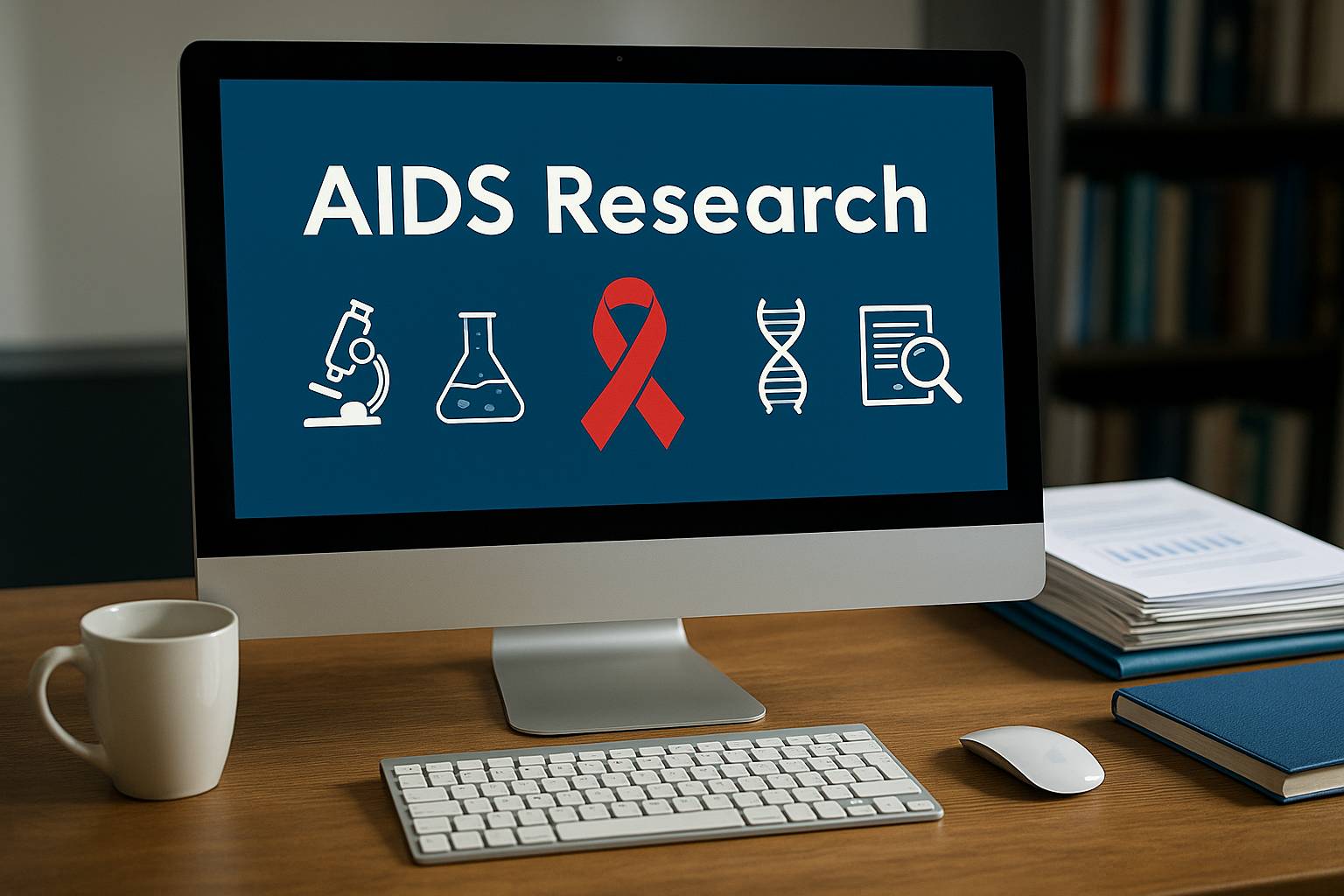
When a crisis spans decades, how do we keep up the fight? For HIV and AIDS, the answer lies in global collaboration, scientific rigor, and accessible information. AIDS research is not just the work of elite scientists in white coats—it involves networks of medical professionals, educators, nonprofits, and patients all contributing to a unified mission.
In this article, we outline the best and most trusted resources in the fight against HIV/AIDS. Whether you’re a healthcare provider, researcher, patient, or advocate, these platforms offer critical insights, breakthroughs, and tools.
Table of Contents
- Major Institutions Advancing HIV/AIDS Research
- Government Databases and Public Portals
- Nonprofit and Global Collaborations
- Patient-Focused Educational Tools
- Conclusion and FAQs
Major Institutions Advancing HIV/AIDS Research
At the core of AIDS research are institutions that fund, conduct, and disseminate scientific studies. These centers set the direction for global strategy and shape public health policy.
Subheading: The NIH and NIAID
The U.S. National Institutes of Health (NIH) funds the largest share of HIV/AIDS research globally. Within NIH, the National Institute of Allergy and Infectious Diseases (NIAID) leads efforts to study HIV’s pathogenesis, treatment, and vaccine development.
NIAID supports clinical trials and publishes critical data on drug resistance, viral load testing, and emerging therapies. Their site (niaid.nih.gov) is a treasure trove of up-to-date research briefs, clinical protocols, and funding opportunities.
Another vital contributor is the amfAR Institute for HIV Cure Research. Headquartered at the University of California, San Francisco, this institution focuses on translational research and cure strategies. They partner with other labs to conduct stem cell studies and investigate gene-editing possibilities.
Government Databases and Public Portals
Access to reliable, peer-reviewed research is fundamental in AIDS research. For the public and health professionals, open databases provide transparency and allow global cooperation.
Subheading: ClinicalTrials.gov and HIVinfo
ClinicalTrials.gov, operated by the NIH, is a searchable database of active and completed studies, including hundreds related to HIV/AIDS. Each listing includes study design, eligibility criteria, and contact details.
Meanwhile, HIVinfo (hivinfo.nih.gov) offers plain-language summaries of complex scientific concepts. This site is particularly useful for those new to the HIV space and features materials in multiple languages.
Additionally, the CDC’s HIV page includes surveillance reports, PrEP guidelines, and links to continuing medical education (CME) for healthcare professionals.
Agencies like UNAIDS and the World Health Organization (WHO) also provide global context, issuing reports on testing rates, viral suppression metrics, and treatment scale-up efforts. Learn more about Aids.org.
Nonprofit and Global Collaborations
Fighting AIDS is a shared mission. Across continents, nonprofit organizations fill critical gaps, especially in regions where formal healthcare infrastructure is lacking.
Subheading: Global and Community-Level Resources
The International AIDS Society (IAS) convenes annual conferences that gather the brightest minds in the field. Their publications and global initiatives address pediatric care, stigma reduction, and policy development.
Another example is AVAC, which promotes biomedical HIV prevention tools and ensures community stakeholders are included in the research process. AVAC also tracks PrEP rollout and vaccine trials worldwide.
In sub-Saharan Africa and Southeast Asia, grassroots organizations like the Treatment Action Campaign and Asia Pacific Coalition on Male Sexual Health play powerful advocacy roles. They demand access to lifesaving medications and spotlight underserved communities.
In the U.S., AIDS.org offers timely updates, educational content, and access to support networks. For more articles on AIDS and HIV education, visit AIDS.org.
Patient-Focused Educational Tools
Research is most impactful when it reaches the people it aims to help. AIDS research must include efforts to educate the public and empower patients.
Subheading: Digital Tools and Support Communities
Online platforms like Healthline, TheBody, and Health.HealingWell.com translate science into digestible articles and Q&A formats. These are great resources for those newly diagnosed or unsure where to start.
Apps such as myHIVteam or CareClinic help patients track medication schedules, set appointment reminders, and log symptoms. These tools reduce missed doses and improve doctor-patient communication.
Resources from AIDSinfo and WHO include downloadable treatment guidelines and brochures designed to increase health literacy. These materials are invaluable for educators, outreach workers, and support group facilitators.
For expert consultation and locating HIV-specialized providers, Healthcare.pro offers access to care listings and clinical services across the U.S.
Conclusion
Fighting AIDS research relies on a robust ecosystem of institutions, technologies, and communities. While labs and clinical trials uncover breakthroughs, it’s education, advocacy, and accessibility that ensure those breakthroughs reach the people who need them.
Whether you’re a researcher looking for data or a patient searching for support, the resources highlighted above are essential tools in advancing the global fight against HIV/AIDS.
FAQs
What organizations are leading AIDS research today?
NIH, NIAID, amfAR, and the International AIDS Society are key players globally.
Where can I find current HIV/AIDS clinical trials?
Visit ClinicalTrials.gov for searchable listings of ongoing and completed studies.
How can patients benefit from AIDS research resources?
Through accessible platforms like HIVinfo and mobile apps that track treatment and health goals.
Are there free educational materials on HIV/AIDS?
Yes. Sites like HIVinfo, WHO, and AIDS.org provide downloadable brochures, guides, and multilingual content.
Where can I find a doctor specializing in HIV?
Use Healthcare.pro to locate experienced HIV providers in your area.
This content is not medical advice. For any health issues, always consult a healthcare professional. In an emergency, call 911 or your local emergency services.



